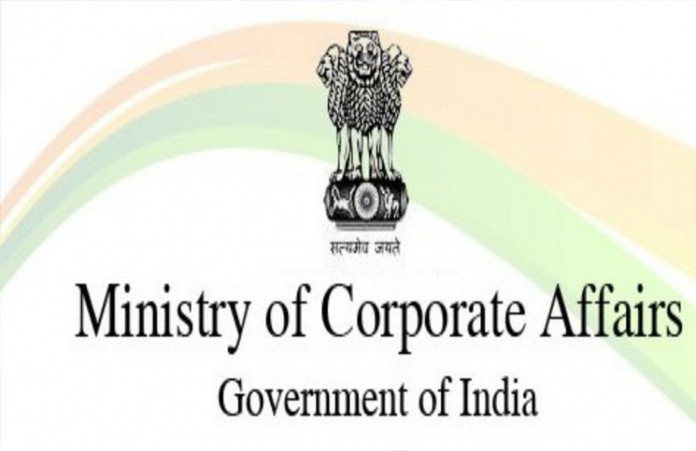In this blog post, Raghav Gautam, a Delhi-based Advocate, practising Civil Commercial Laws (General Corporate Advisory), lists the steps that a business can take when a notice by the MCA and the ROC is served.
The Ministry of Corporate Affairs in India has the power and duty to facilitate and regulate the corporate sector of the country. It has the authority to multifariously manage the same through its extensions like the Registrar of Companies, Serious Fraud Investigation Office, Competition Commission of India and Indian Institute of Corporate Affairs. In recent times, the Ministry of Corporate Affairs (MCA) has established its image as that of a facilitator rather than that of a regulator. The Registrar of Companies (ROC) has the powers to take disciplinary actions against the Companies in default of compliance requirements as dictated by the Companies Act, 1956 and 2013.
In the current stage of the Indian legislative system, the actions are aimed at executing the “transformative change,” than the “incremental change,” as was the case earlier. Prime Minister Mr Narendra Modi in recent times had emphasised the need for such changes in the policy and the Governments of recent past have done the same. It is in pursuance of such overhauling and transformation of the system that Government has granted some specific investigative and disciplinary powers to agencies like the Registrar of Companies and Serious Fraud Investigation Office (SFIO). The powers of the Central Government and the ROC towards conducting investigations and calling for inspection of the books of accounts and documents related to the companies under question have been clearly stated in the new Companies Act, 2013 from Section 206 to 229 in chapter XIV.
The shareholders or investors in the companies these days are in large numbers, they are most of the times scattered and do not have a proper or at times even rudimentary ideas with regard to the management practices of the Company in which their investments are held or in which they are one of the owners. In such cases, it becomes imperative for institutions like the ROC to keep a check on the working of such companies by regularly scrutinising their compliance towards the investor and market friendly stipulations as mentioned in the Law. The investigation is an exercise aimed at fact finding, a survey into the affairs of a company which is aimed at collection of evidence and to examine if any illegal acts or offences are unearthed and then settle the appropriate rectifying action(s) to be taken. The same includes an investigation into the complete business affairs of the Company in question, including but not limited to its profits and losses, assets (like goodwill), contracts and agreements, investments, transactions and other property interests and control of subsidiary companies.
This clearly means that the investigative powers of the ROC in present times is not dependent merely upon the complaints and information tip-off from an outside source but on the ability of the ROC to dissect the functioning and non-compliance by any company, on its own.
Legality of MCA and ROC to Issue Notices
The ROC issues notice to the Companies under the Companies Act, 2013 with regard to a multitude of issues that might affect the interests of various stakeholders in a certain manner.
Section 206
(1) Where on a scrutiny of any document filed by a company or on any information received by him, the Registrar is of the opinion that any further information or explanation or any further documents relating to the company is necessary, he may by a written notice require the company—
- to furnish in writing such information or explanation; or
- to produce such documents, within such reasonable time, as may be specified in the notice.
(2) On the receipt of a notice under sub-section (1), it shall be the duty of the company and of its officers concerned to furnish such information or explanation to the best of their knowledge and power and to produce the documents to the Registrar within the time specified or extended by the Registrar: Provided that where such information or explanation relates to any past period, the officers who had been in the employment of the company for such period, if so called upon by the Registrar through a notice served on them in writing, shall also furnish such information or explanation to the best of their knowledge.
The Section requires the Company in question to produce an explanation with regard to the non-compliance or any other form of discrepancy that needs to be addressed. If the Registrar is satisfied with the same, he may remove the name of the concerned company from the list of defaulters. The registrar has the power to issue a NOTICE, ordering the concerned company to produce the relevant documents for the above-stated purpose. After receiving the relevant documents and records from the company, in case the Registrar has the reason to believe that the unacceptable position, as per the Law, exists in the company, then a Notice under Section 206(3) will be issued by him after recording the reasons for doing the same. Under the said subsection, the Registrar will call on the company to produce for his inspection such further books of account, documents, papers and explanations as he may require at such place and at such time as he may specify in the notice.
Section 206
(4): If the Registrar is satisfied on the basis of information available with or furnished to him or on a representation made to him by any person that the business of a company is being carried on for a fraudulent or unlawful purpose or not in compliance with the provisions of this Act or if the grievances of investors are not being addressed, the Registrar may, after informing the company of the allegations made against it by a written order, call on the company to furnish in writing any information or explanation on matters specified in the order within such time as he may specify therein and carry out such inquiry as he deems fit after providing the company with a reasonable opportunity of being heard.
The Registrar has the power to initiate an inquiry into the affairs of the Company in question if, on the basis of any information received or after having scrutinized the information received, he has an apt justification to believe that the Company in question is involved in unlawful or fraudulent activities or is in non-compliance with any provisions of law under scrutiny of the ROC. The inquiry can only be initiated once the ROC has given the organisation in question an opportunity of being heard.
Apart from the ROC, the Ministry of Corporate Affairs (MCA) (Central Govt.) has the authority to direct the Registrar or an inspector appointed for the purpose, to initiate an inquiry into the affairs of the Company under Section 206(4) of the Companies Act, 2013. Central Govt. has the power to authorise any statutory authority to carry out the inspection of books of account of a company or class of companies by an Order (general or special) under Section 206(5).
The Section 206 of the Companies Act, 2013 corresponds to the Section 234 of 1956 Act and has been notified to be in effect by the MCA.
As per the MCA circular dated May 7, 2014, power to authenticate the correctness and integrity of documents submitted by the Companies have been granted to the members of prominent bodies of Corporate Sector viz ICSI, ICAI and ICWAI. Certain stringent actions have been prescribed for the members who are found in default of having authenticated the documents without any proper basis or analysis. The Regional Director has the authority to issue a 15 days’ notice to the concerned professional(s) under the charge of professional misconduct subject to their right of being heard.
Further, under Chapter XVIII, Section 248 of the Companies Act, 2013:
(1) Where the Registrar has reasonable cause to believe that —
.. (c) a company is not carrying on any business or operation for a period of two immediately preceding financial years and has not made any application within such period for obtaining the status of a dormant company under section 455, he shall send a notice to the company and all the directors of the company, of his intention to remove the name of the company from the register of companies and requesting them to send their representations along with copies of the relevant documents, if any, within a period of thirty days from the date of the notice.
The aim of such provision is to provide an institutional structure towards the compliance requirements and regular scrutiny of the actions of companies concerning issues which may affect the rights of various stakeholders. The MCA has divested itself from most of the disciplinary actions meant to be taken directly or exclusively, and the same have been designated to the Registrar of Companies. The reason behind doing so is aimed at keeping the focus of the Ministry of Corporate Affairs on various innovative measures to improve transparency, efficiency and convenience towards the corporate sector including but not limited to the Companies, Investors, shareholders, etc.
If A Show Cause Notice IS Received From The MCA or ROC
As is quite clear from the provisions stated above, notices issued by the ROC or MCA will have to be dealt by the Companies with utter surety and swiftness. The reason behind doing so is quite uncomplicated: the issues in these cases relate to the basic functioning of the Companies and the MCA through its designated inspectors or the Registrar does not question a Company unless there is a prima facie clear cut discrepancy in its records or there is some sort of insufficient records which are meant to be completed as per the Companies Act, Regulation and/or Rules.
The Company must reply to the ROC or MCA (the concerned authority) within the timeframe mentioned in the said Notice, and the same must be in a detailed manner. The reasons behind the discrepancies must be explained in detail, and if any of the deficiencies can be cured, the same must be done by the Company with the help of a compliance expert (Company Secretary) and a practising lawyer.
It is important to mention here that the Company must always be aware of its right to be heard before the ROC. If there are any inabilities on the part of the Company towards the fulfilment of compliance requirements, such reasons must be mentioned before the ROC and should be cured with the directions of the same.
The Company must provide the ROC with all relevant documents asked for in the Notice within the stipulated period of time. This will only provide impetus to the sincere intentions of the Company towards compliance requirements mentioned in the Companies Act and allied laws.
In its entirety, the government has tried to move towards a more transparent and efficient system of reporting and compliance in light of the growing need of the same in industry. The various first-time laws like the introduction of CSR or One man Company or for that matter the LLP Act, 2008, are some of the actions that exhibit the progressive thought of the authorities and the administrators towards the corporate sector. At the same time, after the unearthing of major scams related to the flouting of regulations in recent years, the government has become even agiler towards the probability of any corporate frauds and mischief in defiance of any compliance requirements. In such an open and futuristic scenario, it is the responsibility of both the Government and the Corporate Sector to work with coherence and efficiency towards the economic development of the country.
 Serato DJ Crack 2025Serato DJ PRO Crack
Serato DJ Crack 2025Serato DJ PRO Crack










 Allow notifications
Allow notifications



Dear Sir,
NOTICE FOR DEFAULT UNDER SECTION 137/92/96 OF THE COMPANIES ACT, 2013 is sent to company. Company has sent reply to ROC. Company has done annual filing. Should company again sent letter to ROC mentioning company has filed all returns.